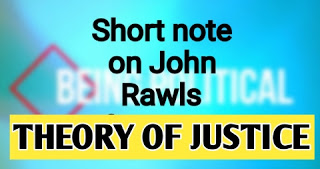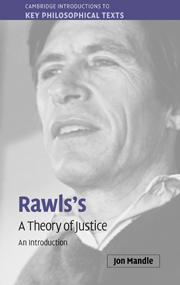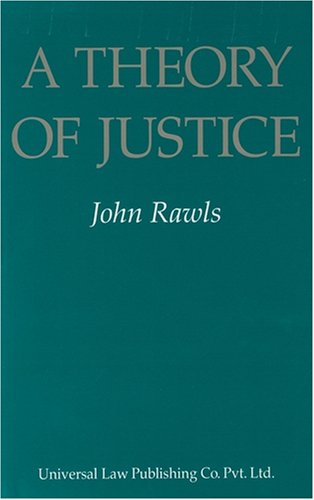


The upside is that, on average, people will by definition come out ahead. ("The greatest good of the greatest number").

We start with the Good, we add up or average the amount of Good that everyone manages to accumulate, and we organise society so as to maximize that. Now if we're thinking about how to organise a society, which is what this book is about, should we start with the Right or the Good? Rawls says the standard answer is the one provided by utilitarianism. If it's going to determine who gets their way when my pursuit of my Good conflicts with your pursuit of yours, then there has to be a set of agreements we have both agreed to honour, otherwise there's no point in having a notion of Right in the first place. The Good will in general be a private notion: what makes me happy need not concern anyone but me. The Good, roughly, is what we want to do, or what will benefit us the Right is what we are allowed to do, when our desires come into conflict with other people's. This may sound like medieval angels-on-the-point-of-a-pin hairsplitting, and I am sure I would once have dismissed it in those terms, but to my surprise I found it has a precise meaning. The central question, if I may practice my still unfluent moral philosophyspeak for a moment, concerns the relationship between the Right and the Good, and how they should inform our choice of social structures: in particular, which of the two should take precedence.

It took me a while to understand what this famous book was about - I am still far from up to speed with moral philosophy - but once I'd figured out where Rawls was heading it made good sense and was very illuminating. Rawls received both the Schock Prize for Logic and Philosophy and the National Humanities Medal in 1999, the latter presented by President Bill Clinton, in recognition of how Rawls's thought "helped a whole generation of learned Americans revive their faith in democracy itself." His magnum opus A Theory of Justice (1971) is now regarded as "one of the primary texts in political philosophy." His work in political philosophy, dubbed Rawlsianism, takes as its starting point the argument that "most reasonable principles of justice are those everyone would accept and agree to from a fair position." Rawls employs a number of thought experiments-including the famous veil of ignorance-to determine what constitutes a fair agreement in which "everyone is impartially situated as equals," in order to determine principles of social justice. He held the James Bryant Conant University Professorship at Harvard. John Bordley Rawls was an American philosopher and a leading figure in moral and political philosophy.


 0 kommentar(er)
0 kommentar(er)
